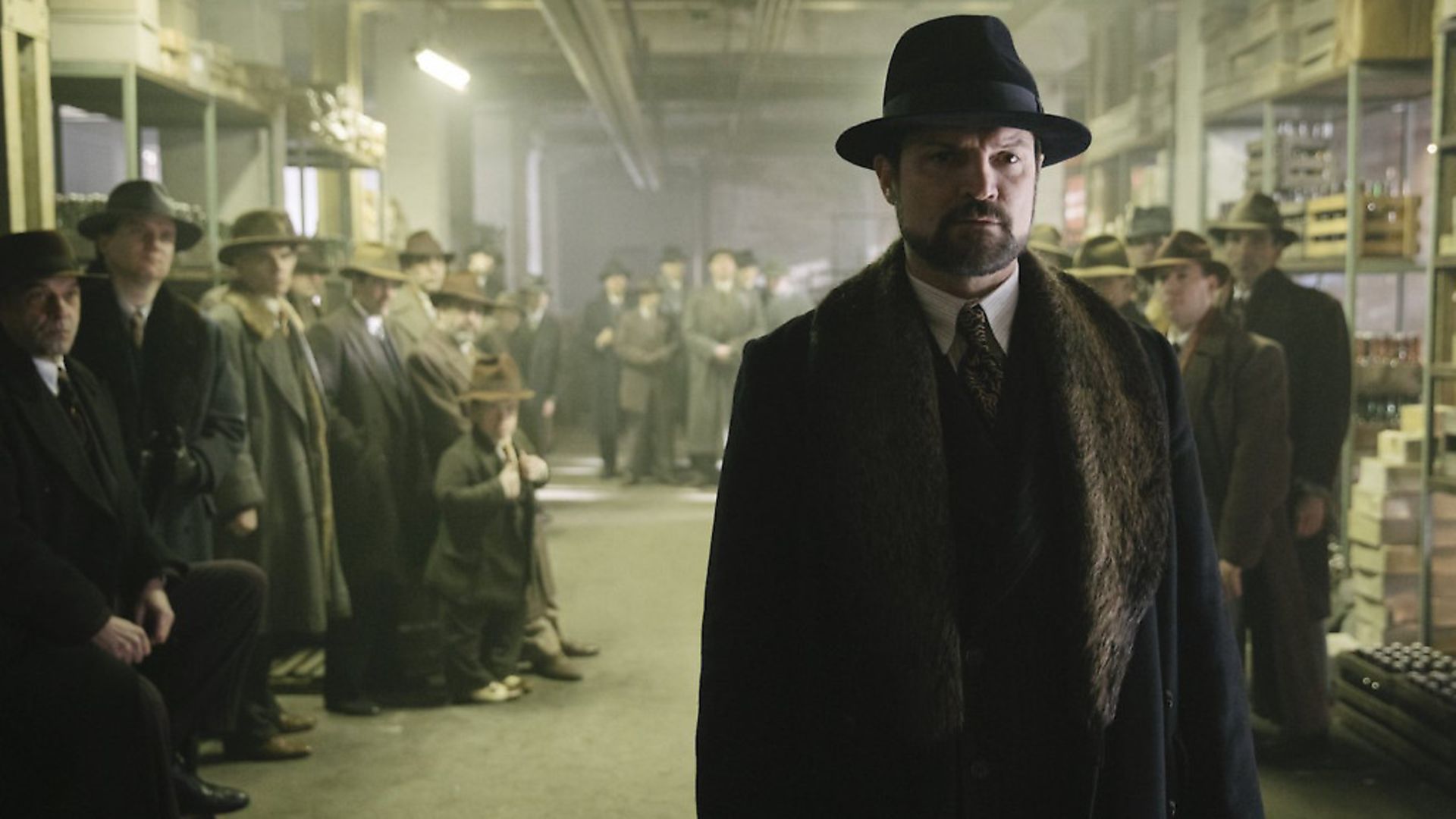
BILL BORROWS talks to one of the creators of Babylon Berlin, the hit TV series set in Weimar Germany, about the show’s success and the era’s troubling parallels with today.
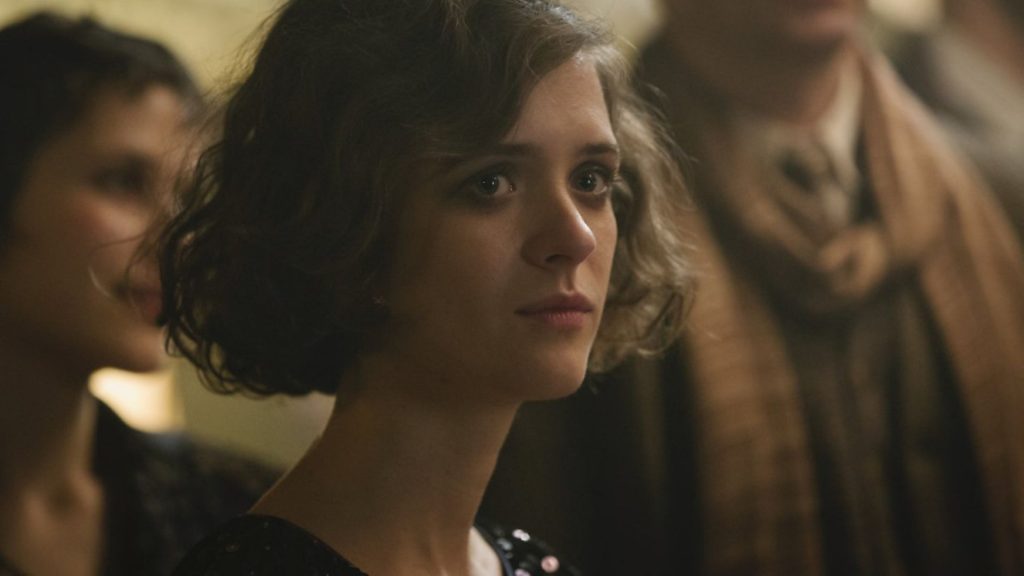
There’s a moment in the first season of Babylon Berlin when detective chief inspector Bruno Wolter, played with beautiful pared-back menace by Peter Kurth, looks like nobody so much as a Farewell, My Lovely-era Robert Mitchum. Post-lockdown.
The scene is in a bordello beneath a night club and the attendant femme fatale with a problem that won’t solve itself, Liv Lisa Fries as Charlotte Ritter, is pulling up her stockings.
The low-rent big city cop has a post-coital cigarette hanging from his lips. In fact, the only slightly unexpected addition to the whole neo-noir tableau is that Wolter is reclining on a chaise longue stark bollock naked. This is, then, suddenly and unmistakably a historical drama set in Weimar Germany.
Based on the novels of Volker Kutscher, Babylon Berlin launched to almost unanimous acclaim in 2017 and has now been sold to more than 100 countries. As the third season begins on Sky Atlantic it can be considered to be Germany’s first TV blockbuster to rank alongside the best output from the US, UK and Scandinavia. It has been compared to Peaky Blinders and has similarly captured the imagination of the viewing public: Charlotte Ritter has become a feminist icon; guided tours of Berlin take in many of the show’s locations; and, the main theme tune Zu Asche, Zu Staub sung by Lithuanian actress Severija Janušauskaite (Countess Svetlana Sorokina, a cross-dressing singer and Soviet spy in the series) charted in Germany.
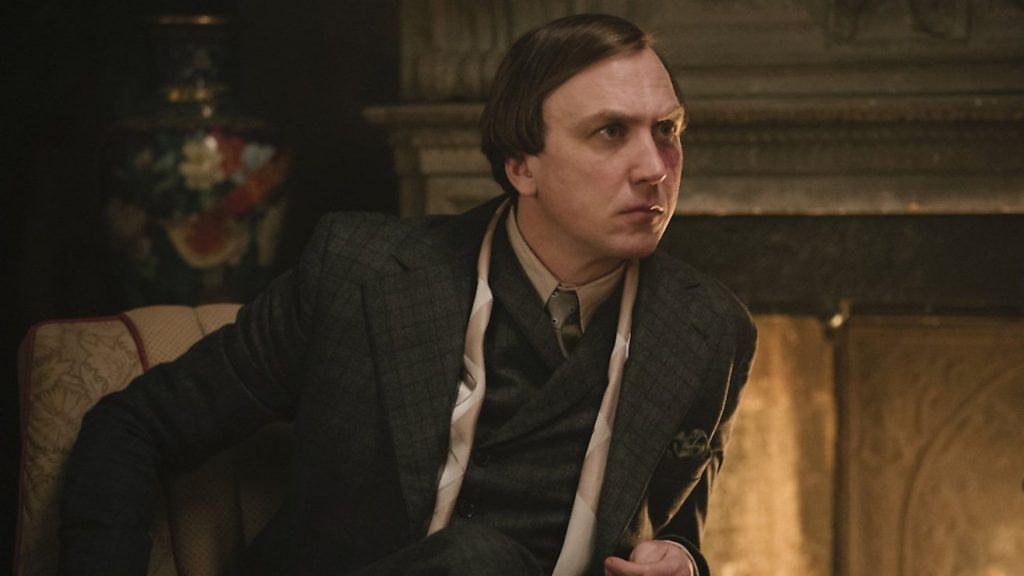
So far, so Weimar. The period between the end of the First World War and the rise of the Nazis usually finds itself in the dock when the guilty parties are sought for the horrors about to be visited upon the world.
If it is remembered at all it is as either the nightclub demi-monde beloved of the ‘divinely decadent’ Sally Bowles in Cabaret or the failed social democratic experiment where hyper-inflation meant that people had to collect their wages in a wheelbarrow.
In truth it was both those things but also much more and it is this world in the pivotal year of 1929 that the three co-creators, writers and directors Tom Tykwer, Achim von Borries and Hendrick ‘Henk’ Handloegten have strived to recreate.
‘I suppose we were attracted to the period because so much was going on,’ says 51-year-old Handloegeten, now busy writing the fourth season.
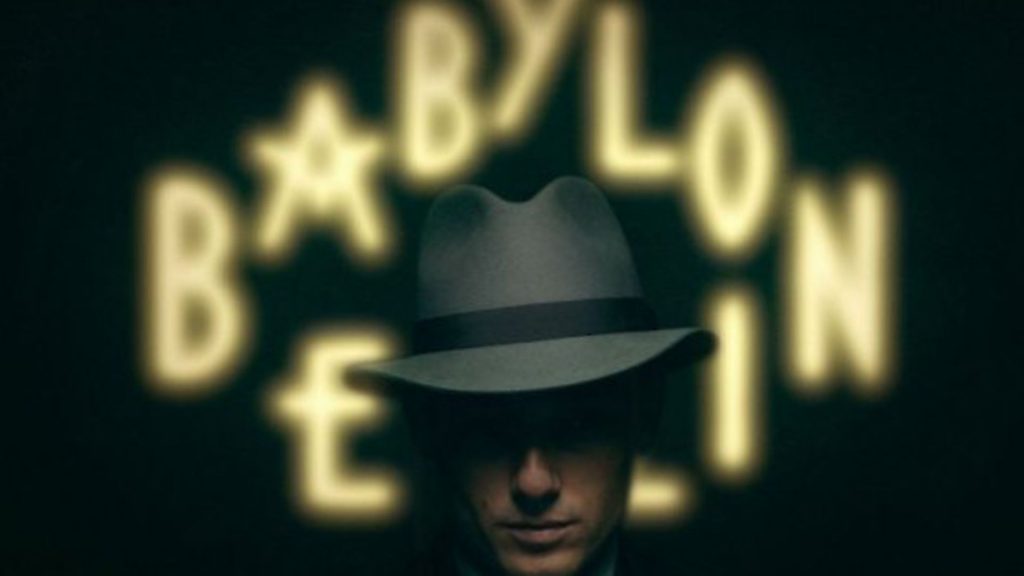
‘Another reason was definitely because there haven’t been many films set in that period to date. There was Berlin Alexanderplatz (the mini-series from 1980 by Rainer Werner Fassbinder), but the first film that comes to mind for most people is Cabaret by Bob Fosse. That’s good but people know it chiefly because of Liza Minnelli. She is the film and that is the way that we also found out [about the Weimar Republic] in Germany,’ he remembers. ‘There was not so much talking about that period when we were at school and that is kind of understandable because the barbarism of the Nazi regime was so overwhelming, and at that time only 40 years previously.
‘It was still very present in a way and everybody was trying to get that into the German head so the Weimar Republic at that point seemed to be of lesser interest but I think that has changed now.
‘I heard that some teachers are showing Babylon Berlin to their pupils now which is strange to me because we are making fiction. What we are depicting is not Berlin in 1929 but Babylon Berlin in 1929.’
Strange perhaps, but surely also strangely satisfying. With a budget of 40 million euros (the most expensive non-English language screen production ever made at that time), there was clearly a determination to make the show work but, as Handloegten points out: ‘It surprises me when I hear that Babylon was sold in China and India and when I imagine a teenage Indian girl, for example, watching events from 1920s Germany and still finding that kind of thing interesting, that is fascinating to me. I have to say the worldwide success of the show has taken us by surprise.
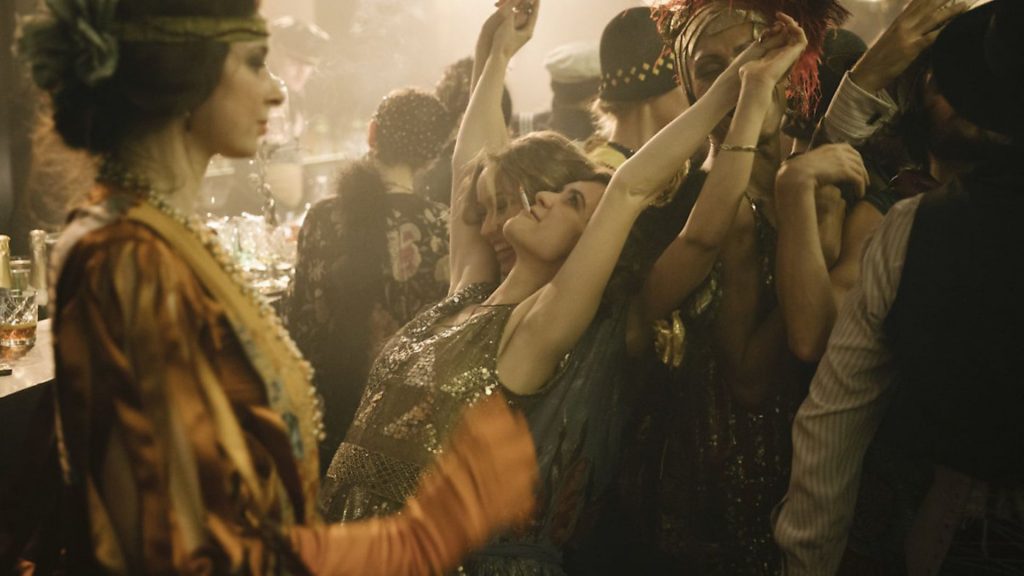
‘When we started [working on the project] in 2013 the world, the political world, was completely different and the Weimar Republic nowadays seems much more relevant to a worldwide audience than it used to be seven years ago.’
He checklists the rise of populism throughout the world, the looming economic uncertainty and the sense that bad times might be just around the corner but adds: ‘It’s not just the gloomy things that resonate now. There are a lot of other things. The end of the 1920s in Berlin was the birthplace of modernism in all kinds of ways – in society, in arts, in science, medicine… it was all happening as it always does when groups of all nationalities and colours come together in one place at the same time, there is always, for a certain period, a very strong energy. I guess that is why it is so appealing to us nowadays.’
More ominously, however, after seven years anchored in the period, immersed in the micro and macro detail of everyday life, the research undertaken by Volker Kutscher and that of himself and his colleagues (‘People in the late 1920s were doing nothing so much as writing things down, in their diaries, in newspapers… there were 100 newspapers printed every day in Berlin alone and there were four editions a day’), Handloegten cannot escape the similarities between then and now. ‘If you read the articles or novels or watch the films of that era, everybody was talking about acceleration, everything was going faster and faster, getting louder and louder and people were not understanding the changes that were being made in the world technically and politically.
‘They just couldn’t understand what was going on anymore. It’s called the death of the volcano… everything is going faster and faster and at some point it is just too fast and people were not feeling good any more. It was just too much you know. If you look at our opening credits, this is what we were trying to do. We told our title designer Saskia Marka to think about something like a core where all the energy from all kinds of places comes in, gathers and gets faster and stronger… like a vortex, and then it bursts in a huge explosion, and that is what was happening at the end of the Weimar Republic.’ Which, in reference to now, is perhaps less than reassuring but, in terms of pure energy, totally in keeping with the creative driving forces behind this remarkable high-end drama.
All three of the show’s co-creators are heavily involved in a process as unusual as it has been successful. The three of them plot the scenes and then divide the episodes with Tykwer, von Borries and Handloegten taking it in turns to write 15 pages each before submitting their work to the other two who go over the script until each one of them has helped write every scene.
At that point the directorial duties are assigned and split up into blocks and by location so that one of the three will be shooting for two months (with his two colleagues on the set) at a location that might be used in episodes one, five, seven and 14.
Eventually, everyone has a scene in each episode and then the editing replicates the script phase. ‘It’s a very strong collaboration,’ says Handloegten. ‘And in the end it’s really a film from three directors and writers and that is a great number because if you don’t agree it goes straight to the vote, two-to-one, and that always works.’
It is also, he believes, the secret of the show’s success. ‘We are offering a big, panoramic view of an era and you have the very poor, very rich, the ones in-between, the left wing, the right wing, the parties of government, you have all kinds of people and situations mixed together.
‘If you imagine that one of us always looked at the Nazis then it would be very boring after a season. Or take Charlotte Ritter for example, perhaps Achim will see something more important than I do in her character or Tom might emphasise something completely different. It’s a little more realistic – if we talked about a mutual friend you would point something out about them and I would point out something different, it keeps the whole dynamic very lively.’
And in demand. The pace to deliver is ‘crazy’, according to Handloegten – the original team have just taken on two female writers for season four – but as more territories become familiar with the travails of police inspector Gereon Rath (Volker Bruch), curious ambition of Bruno Wolter and adventures of Charlotte Ritter et al as they rush headlong into global depression and the breakdown of democracy, the uneasy suspicion that art is mirroring life underlines every plot twist and brings a bigger audience to the edge of their seats to see just what happens next.
‘We are trying to tell [the story] that people had the choice before the Nazis took over,’ he says. ‘After 1933 it was impossible for most and after 1938 it was absolutely impossible for everybody. But at the time we are talking about you could make decisions and a very old German audience responds very positively to that and goes, ‘You see, this is what happens when you don’t pay attention’.’
• Babylon Berlin Series 3 and the 1-3 Box set are available on digital 11 April and DVD 13 April









